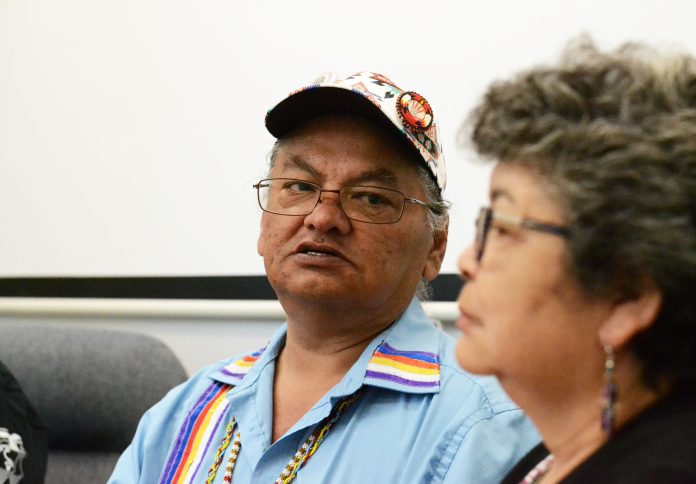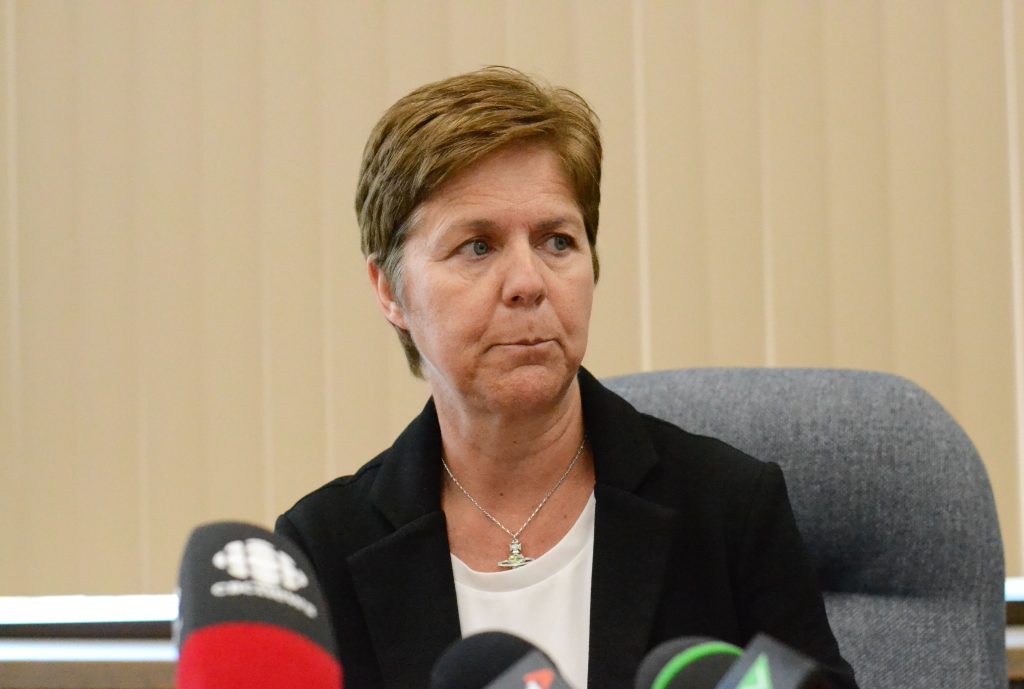
‘We could have found her,’ says Happy’s daughter if communication with police occurred faster
The family of Happy Charles is hoping to create an independent missing persons office in Saskatchewan to help other families overcome setbacks that they experienced — including being heard by police in a timely manner.
According to Happy’s step-father, Carson Poitras, the family didn’t speak to police until a week after her disappearance.
“The families just want to be heard, to know that somebody cares, somebody’s listening, somebody will take their message to the authorities,” he said.
Poitras said the Prince Albert Police Service’s missing persons liaison position was vacant at the time Happy went missing.
She was last seen on surveillance video near the Prince Albert Collegiate Institute just before midnight on April 3, 2017. Police were able to follow her movement for two days, before coming to a halt when she walked out of the camera’s sight.
Aleisha Charles remembers the last time she saw her mother.
“I had that last hug with her and she told me ‘Everything’s going to be better, my girl.’ Everything was just blue and I was shaking. I knew in that moment that was the last time I was going to see her,” said Aleisha.
“We all knew right away something happened to her and there was no help for that first week. I think we could have found her.”
The missing persons office would be a “watchdog” to ensure police are receiving information on a timely basis, explained Poitras. It would also provide another avenue for people to come forward with tips, while allowing families of missing people to connect and support each other.
Poitras said he hasn’t heard back from the provincial government about creating an office, which would be located in Prince Albert. The family is looking at creating a petition with other victims’ families.
He emphasized that while the family didn’t receive much help from police in the beginning, the communication has improved and they’re always aware when new information comes in.
“We can’t give up until we bring her home.”
‘Grief is a tough thing’
Sgt. Kathy Edwardsen investigates historical crimes and missing persons cases. She said a civilian group could help bridge the gaps that police often see when someone goes missing.
“People aren’t comfortable sometimes. Maybe they have a warrant, maybe they’re in trouble for something and they don’t want to talk to police, but they would probably talk to you guys, the families,” she said.

Edwardsen said police have received several tips on Happy’s case, but they’re vague.
For example, if a tip comes in saying remains were found north of Prince Albert, the civilian’s group could work to narrow down exactly where to search.
She added that effective communication between the independent body and police would be necessary for its success.
But ultimately, she’s open to the idea, if it means finding closure for Happy’s family and all loved ones of those who are missing.
“Grief is a tough thing. Every one of us has lost somebody in our lives — and you suffer,” she said. “And that’s when you know what happened to your loved one.”
“When you don’t know, that’s quadruple the grief. To think that there are people out there responsible for possibly killing someone or having taken some kind of act that made them go missing and to know the grief people are going through and to not come forward, that is hard to imagine.”
Anyone with information on a missing person is encouraged to submit tips anonymously through Crime Stoppers at 1-800-222-8477 or the Prince Albert Police Service at 306-953-4222.

